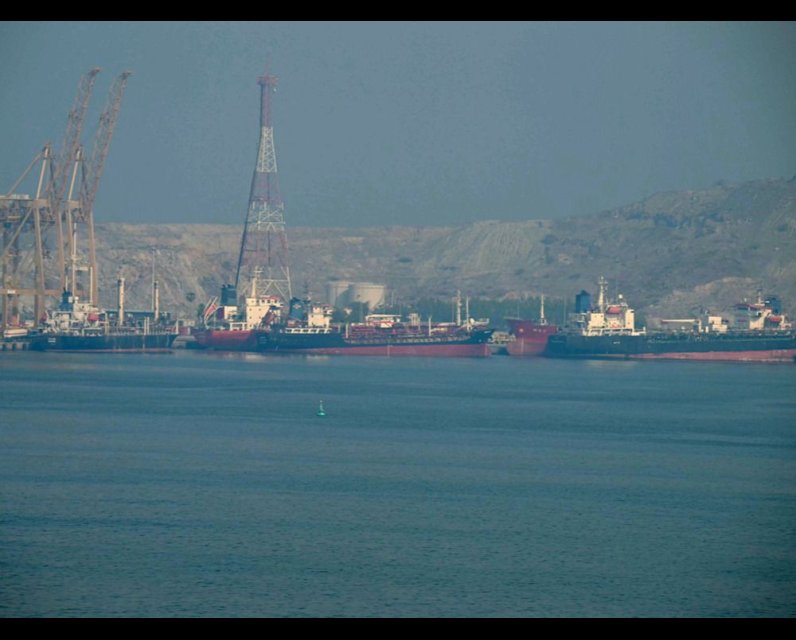What is the Strait of Hormuz, and what would it mean for Iran to close it?

Among the many concerns surrounding the ongoing conflict involving Israel, Iran and the United States is the state of the Strait of Hormuz, a vital shipping lane for much of the world’s oil and natural gas. Here’s what to know.
What is the Strait of Hormuz?The Strait of Hormuz is a narrow channel of water that connects the Persian Gulf with the Arabian Sea (and beyond that the Indian Ocean). It is bounded on one side by Iran, and on the other by Oman and the United Arab Emirates. About 167 kilometres long, it is only about 50 kilometres wide at its entrance and exit, and just 33 kilometres across at its narrowest point. Since territorial waters typically extend 22 kilometres from the mainland, this puts part of the strait in both Iranian and Omanian waters.
Why is it important?According to CBS News , more than a quarter of all oil shipped by sea in 2024 and the first quarter of 2025 travelled through the Strait of Hormuz. This amounted to about one-fifth of all oil and petroleum consumption worldwide. The strait also accounted for about one-fifth of the world’s liquefied natural gas (LNG) trade last year.
Close to 40 per cent of the oil that has passed through the strait daily came from Saudi Arabia — the most of any country — while most of the LNG was from Qatar. Other oil-producing nations that use the strait include Iran, Iraq, Kuwait, Saudi Arabia and the UAE.
What could Iran do to disrupt traffic there?A report by Britain’s Guardian newspaper notes that the most likely disruption would be in the form of mines laid in the shipping channel and primed to explode or launch a rocket from the seabed if they detect passing traffic.
However, it notes that laying the mines would be a dangerous job, since any attempt to do so would likely come under attack from American and/or Israeli forces.
Sir Alex Younger, former head of the U.K.’s intelligence agency MI6, told the BBC that a blockade of the strait by Iranian ships was another possibility, adding: “Closing the strait would be obviously an incredible economic problem given the effect it would have on the oil price.”
How likely is this?It’s worth noting that Iran has repeatedly threatened over the years to close the Strait of Hormuz, but has never actually done so. The nearest it came was in the late 1980s, when so so-called “tanker war” saw attacks on Kuwaiti and other oil tankers. This led to U.S. warships escorting tankers through the region for a while.
Opher Baron , a distinguished professor of operations management at the Rotman School of Management at the University of Toronto, said that closing the strait could harm Iran’s economy as well as others.
“There are ways to let your ships go through when you close it but it’s complicated,” he said.
On the other hand, he noted that Iran “has its back to wall, more than past events. They may now take steps that they didn’t take in the past.”
Others are less concerned. An analysis by Reuters noted that, since the 1980s, several overland pipelines have come online in the region leading to the Red Sea port city of Yanbu, Saudi Arabia, and the Fujairah oil terminal in the UAE, which is just outside the Strait of Hormuz.
What is likely to be the effect on gas prices?Oil prices are already up over the uncertainty caused by the U.S. attack on Iran .
Baron said the longer the conflict continues, the higher prices will go, and that a blockade of the strait could cause an even sharper spike.
“The uncertainly that it adds … is going to create some increases in price, and I think this will stay for quite a while,” he said.
Gas prices have already risen in the past week, in part due to the threats in the region. “A step like this is escalating things rather than de-escalating it,” he said. “So I’m afraid it’s going to have a longer impact, and we could see gas prices 20, 30 per cent that what they were a couple of weeks ago.”
Our website is the place for the latest breaking news, exclusive scoops, longreads and provocative commentary. Please bookmark nationalpost.com and sign up for our newsletters here.



Comments
Be the first to comment